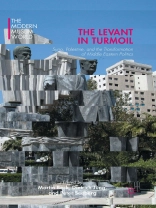Since the early weeks of the so-called Arab Spring, high hopes for democratic, social, and political change in the Middle East have been met with varying degrees of frustration. In the sub-region of the Levant, regional uprisings have turned to violent conflict in places such as Syria, Iraq, and the Gaza Strip. In Syria, popular unrest has caused enormous human suffering in one of the most brutal civil wars the region ever has witnessed, yet the international community has shown an appalling inability to act. Taking the war in Syria as its central point of reference, this book raises the question of whether the developments in the Levant might lead not only to processes of regime change, but also to a fundamental alteration of its entire state system.
Зміст
Contents
List of Illustrations
Acknowledgments
Introduction: Political Turmoil and Social Transformation in the Levant; Martin Beck, Dietrich Jung, and Peter Seeberg
1. Syria’s Civil War and the Reconfiguration of Regional Politics; Fred H. Lawson
2. Deadly Implications: The Rise of Sectarianism in Syria; Peter Sluglett
3. Conflict, Governance and Decentralized Authority in Syria; Samer N. Abboud
4. The Syrian Refugee Crisis And Its Impact On Jordan: In Reference to the Regime’s Structural Deficits; Simone Hüser
5. The Crisis in Syria, International and Regional Sanctions and the Transformation of the Political Order in the Levant; Peter Seeberg
6. The ‘Syrian Effects’ and the Regional Quest for Human Dignity in the New Syrian, Egyptian and Tunesian Constitutions; Mervat F. Hatem
7. Israel and a Palestinian State: Redrawing Lines?; Lorenzo Kamel
8. Failed Attempts or Faliures to Attempt? Western Policies toward Palestinian Statehood; Martin Beck
9. Turmoil in the Levant: Inconclusive Conclusions; Dietrich Jung
Contributor Bios
Index
Про автора
Martin Beck is Chair of Contemporary Middle East Studies at the University of Southern Denmark, Odense. He has published extensively on Middle Eastern affairs.
Dietrich Jung is Professor and Head of Department at the Centre for Contemporary Middle East Studies, University of Southern Denmark. He has published widely on wars and conflicts in the Middle East, as well as on modern Islam.
Peter Seeberg is Associate Professor and Director of the DJUCO-project, an academic cooperation project in Amman, Jordan, since 2009 funded by the Danish Ministry of Foreign Affairs (www.djuco.org).












